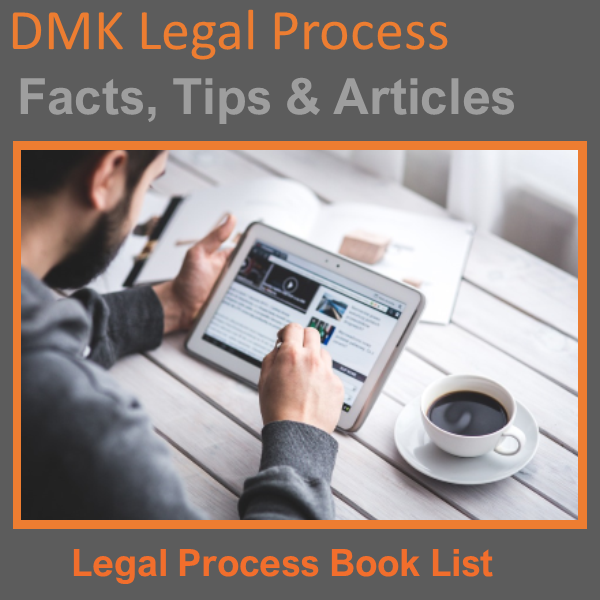It helps to understand three parts of divorce: emotional, legal and the final effect. To avoid paying more than your share of the marital credit card debt, you should understand these three parts along with your state's laws along with what a typical divorce judgement does and does not guarantee.
Part One "Emotions"
The emotional part is love sickness to include all the wonderful emotions of a breakup. Anger, sadness, guilt and feelings associated with blame are big culprits.
Part Two "Legal"
The legal part is the formal representation of marriage death. The physical act of pulling the plug. It can assign legal blame, delegate responsibilities, detail custody, split assets and award financial settlements and support.
Part Three "The Affect"
The final affect is how the first two parts and a failed marriage change the lives of all affected to include spouses, children, extended family, pets, debts, home, assets, etc.
Divorce is confusing
These three parts of divorce can cause either spouse to lose objectivity during each phase of the divorce. It’s difficult to manage a major change that has legal consequences affecting just about everyone and everything in your lives. While an attorney can guide you in many aspects of the proceedings, many people fail to understand how the judgement does and does not necessarily protect, provide or guarantee what it stipulates.
Settlements and debts
Family and individual debt is one of the most misunderstood parts of a Final Judgement of Divorce. There are several reasons why.
- One major issue many people don’t understand is that while your judgement may specify responsibility of specific credit cards to one spouse, both account holders are still responsible for those cards until the accounts are paid in full (unless they are closed and reopened in the responsible party's name as stipulated in the decree). The credit card company will continue to report the debt details and payment history on both credit reports despite your court order. These debts will continue to be considered in debt-to-income ratios for home purchases, as well as, in determining your overall credit worthiness, scores and payment history.
- Often, many individuals will request one name be removed from the account. Despite some creditors accepting written request to do so, you still may be legally responsible for the debt after your name has been removed. The only way to assure your name is removed from the account and the debt is satisfied is when the account is paid in full. You can suggest your spouse refinance the loan with the original lender or qualify and obtain a new loan as a single account holder (paying off the original loan in both your names). But documentation of the closed account should be requested and confirmed in writing prior to the establishment of the final divorce settlement/judgement.
- If you agree to accept a settlement that assigns certain debts for which you are a joint account holder with your former spouse, and he/she fails to pay as agreed you will be subject to derogatory credit reporting regarding the accounts and be legally liable. Moreover, you will still be expected to meet the obligations of debts you assumed in the judgement thus forcing you to take responsibility for an unfair portion of debts in an effort to maintain your credit worthiness.
When determining who keeps certain debts, do not forget original debts, possibly incurred prior to marriage that are now part of a home refinance, home equity loan or line of credit. If your spouse incurred a credit card debt that was later made part of your home loan(s), you may want to ask him/her to take responsibility for those in some other part of the settlement, if you assume the home mortgage. This is not a guarantee he/she will do so, and you should discuss the matter with your attorney regarding your state's statutes (also ask your attorney about how the division of debts is divided based on if you reside in a community property state or equitable distribution state) and the best way to negotiate your settlement.
For the those of you who read this article after the divorce is final, if your spouse is failing to comply with the court order you may have some legal recourse, but regardless of the outcome, your lenders will continue to hold you liable. The confusion is usually in that the court/divorce order is between you and your spouse, not your lenders.
Those of you who read this article prior to an established settlement should hire an experienced attorney who can properly word the terms of the settlement so that you have a better chance of recovery of any loss incurred following the divorce, as a result of your spouse's failure to pay his/her share. There is no guarantee, and you will still remain liable to your lenders.
Disclaimer
The information provided by respective owner's ("we", "us" or "our) on Divorce Me Knot (referenced also as "DivorceMeKnot.com", "dmk", "DMK", "OurDMK.com", "OurDMK", "application" or "site") is for general informational purposes only and is subject to change with or without notice. All information on our site and application is provided in good faith, however we make no representation, guarantee or warranty of any kind, express or implied, regarding the accuracy, validity, adequacy, reliability, availability or completeness of any information on the site or application.
The information in articles and all content on this site should not be considered psychological or behavioral health therapy, counseling or legal, financial, real estate, mortgage, insurance or professional advice. It should not be used in place of professional advice from a counselor, therapist, physician, behavioral health professional, legal, real estate, mortgage, insurance, financial advisor or other licensed professional or credentialed expert in related subject matters. Providers of content on this site, herein known as "Contributors" (inclusive of, but not limited to writers, bloggers, editors, employees, developers, graphic designers, advertisers, partners, affiliates, references, experts, professionals and site owners) are not legally liable for any misinformation, errors or omissions.
Under no circumstances should DMK and/or it's Contributors have any liability to users of the site for any loss or damage incurred to users as a result of the use of this site or application or reliance of any information provided on the site or application. Use of the site or application and reliance on any information from the site or application is solely at the user's own risk.
For complete site disclaimers review "Disclaimers" on this site or click the link below.





 How to resolve AdBlock issue?
How to resolve AdBlock issue?